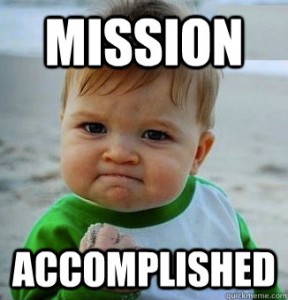Student Learners
Here we meet again, this time only to discuss one of the most important parts of a classroom, the students. Our student’s are the sole reasons we become teachers. Am I right? We want to help the younger generation achieve greatness. However, in order to do that we must first understand how student’s learn. Let’s dig a little deeper.
How do student’s develop and construct knowledge? How do the developmental characteristics by famous psychologists impact teaching and learning?… I believe that students learn by doing. I think that is the way that they are able to get real life experiences both in and outside of the classroom. There are four main psychologists who each have great models and theories.
What are the main benefits and limitations of the models and theories?.. First, lets start by explaining who they are. We have Piaget who created the stages of cognitive development which has four stages. In grade school, where I’ll be working we have the concrete operational stage. This is where children “Can think logically about concrete (hands-on) problems” (51). Some of the benefits to Piaget’s model include the fact that it is very consistent and coherent. However, some people believe that Piaget may have overlooked effects of culture, and even social group. The next person on the list is Vygotsky. He uses the scaffolding method, and takes students just outside of their comfort zone to reach new learning potential. Some benefits to his model are that he is more sensitive to diversity, but he can be very vague, and he has insufficient attention to development issues. After Vygotsky, we look at Erikson. Erikson created the stages of psychosocial development. there were many benefits to this model including a child creating identity diffusion. However, what if a child gets “stuck” at a certain stage? Then wouldn’t they fall behind from their peers in school? I feel that could be a great disadvantage to them learning. Lastly, we have Bronfenbrenner who created the bioecological model of human development, and he also discussed the different types of parenting such as authoritative, and permissive. He had some positives to his model. For example, he explains that everything you do affects how you learn. If a teacher has a good learning environment, then it could positively affect their learning. However, on the contrary, if a teacher has a different style then the parenting then that could result in the student having a hard time with learning.
How can I take all of these theorists, and apply them to inform my future teaching?.. It is obvious that these models all work together inside of a classroom, and it is extremely important to incorporate all of them to help my student’s achieve higher learning. I am not a teacher yet, however I do work with an after school program. My school is an elementary school. I work with the age that Piaget would consider to be concrete operational. We do daily activities such as the question of the day. This requires my students to “dig deeper” and think of an answer. Vygotsky can be used in the future by having my students run a school store teaching them inferiority vs. industry. I will use scaffolding to help my students achieve what they almost know by challenging them. Lastly, I will take the time to understand my student’s not only as learners, but on a personal level. Getting to know my after school student’s on a personal level really helps me understand where they come from, and that can help me teach them.
I found this awesome video about a teacher who creates a handshake with all of his students. It is a great example of creating a one-on-one relationship with students
Filed under Uncategorized | Comments (2)
Teaching and Research
So, What is the relationship between research and teaching?… Teachers need to do research, or have someone help them do research so that they can continuously strive to become better in their field. Us teachers are teaching the next generation, and we need to find ways to help all of out students succeed. Research can help us make accommodations to our classrooms, and teaching methods for all types of learners.
So, How can I use information literacy to evaluate and select information about students and teaching?.. Well first of all I have to know what I’m researching. Let’s say I’m looking for research on Aspurger’s Syndome and learning math. First I have to know the issue, and the important parts of my research. Once I find the research that is most important, and helpful in my situation I can apply it, and help the child who has Aspurger’s Syndrome learn to the best of their ability.
What does this mean for my future career?.. I will be a constant researcher and learner in my career. I will constantly be researching new ways to help my students, and then learning how to apply it in the classroom to help all of my students achieve greatness.
Showing that I know how to apply research doesn’t have to wait until I am a teacher. In class we have talked a lot about the home work debate. Should homework be given to students? I started out believing that we should give our student’s homework. I mean, I was given homework all throughout grade school, and my academic achievements were just fine. However, while doing some research I started to feel the opposite way. According to Ronning (2010), some students who received homework actually did worse in their academics. Some even by 12 percent. This made me sit back, and think about what I was reading. Students who get homework actually can have a decrease in grades? This made me want to do more research on not giving out homework. This is where I found the article that Zimmerman and Kitsantas wrote. Research by Zimmerman and Kitsantas (2005) shows high school students, and the relationship between self-efficiency, homework, and GPA. It shows that there is a positive correlation with self-efficiency, homework, and GPA when the student is responsible. However, in elementary school it is half of the student’s responsibility, and half of the parents responsibility depending on how young they are. Again, this helps show that elementary students shouldn’t get homework. Even Marzano and Pickering (2007) state, “Although teachers across the K-12 spectrum commonly assign homework, research has produced no clear-cut consensus on the benefits of homework at the early elementary grade levels” (p.5). If it isn’t benefiting my students in the long run, why would I make them do it? They could be instead spending time with their families, and learning new skills at home and, according to Suhay (2015), “The schools that have given up assigning homework report uniformly fabulous results” (p.1). Although I started this research question with the opposite opinion that I now hold, I believe that it will benefit my future elementary school students the most if they are given no homework, and instead encouraged to spend time with their families, and learn new skills at home.
Marzano, R., & Pickering, D. (2007, March). Special Topic/ The Case For And Against Homework. Educational Leadership, 64(6), 74-79. http://www.lincnet.org/cms/lib05/MA01001239/Centricity/Domain/108/Homework.pdf
Ronning, M. (2011). Who benefits from homework assignments?. Economics of Education Review, 30(1), 55-64. http://dx.doi.org/10.1016/j.econedurev.2010.07.001
Suhay, L. (2015, March 6). New York school abolishes homework. Does homework do any good?. Christian Science Publishing Society. Retrieved from https://libproxy.uww.edu:9443/login?url=http://search.proquest.com/docview/1660974352?accountid=14791
Zimmerman, B.J., & Kitsantas, A. (2005). Homework practices and academic achievement: The mediating role of self-efficiency and perceived responsibility beliefs. Contemporary Educational Psychology, 30(4), 397-417. http://dx.doi.org/10.1016/j.cedpsych.2005.05.003
Filed under Uncategorized | Comments (8)


